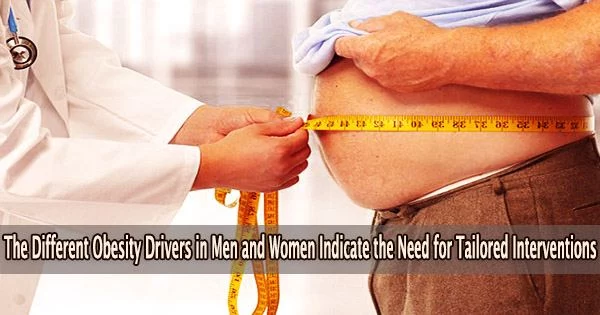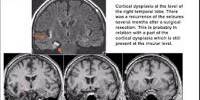Researchers at UCLA have discovered sex-specific brain signals that seem to support the idea that different factors contribute to the development of obesity in men and women. The study, which was published in the peer-reviewed journal Brain Communications, used information from various MRI modes as well as patient clinical characteristics and personal histories to pinpoint sex-specific brain mechanisms underlying obesity.
“We found differences in several of the brain’s networks associated with early life adversity, mental health quality, and the way sensory stimulation is experienced. The resulting brain signatures, based on multimodal MRI imaging, may help us more precisely tailor obesity interventions based on an individual’s sex,” said Arpana Gupta, PhD, a brain, obesity and microbiome researcher at UCLA and senior author of the study .
Gupta said this is believed to be the first study using a data-driven approach to predict sex-specific obesity status based on multimodal brain signatures. It expands on a UCLA study conducted earlier by Gupta and colleagues, which looked at sex-related variations in the predominance and signaling of certain brain areas in obesity.
That study revealed that men’s eating behavior is typically influenced by a better awareness of gut sensations and visceral responses those associated to stomach discomfort, in addition to discovering that emotion-related and compulsive eating appear to play a significant part in obesity in women.
We found differences in several of the brain’s networks associated with early life adversity, mental health quality, and the way sensory stimulation is experienced. The resulting brain signatures, based on multimodal MRI imaging, may help us more precisely tailor obesity interventions based on an individual’s sex.
Arpana Gupta
In addition to providing MRI evidence of abnormalities in brain structure, function, and connection that may help researchers better understand the urges and behaviors associated with obesity, the new study validates and corroborates numerous findings from that and earlier investigations.
For example, alterations in certain brain networks suggest that compared to men, women with a high body mass index (BMI) may be more keenly aware of and drawn to highly processed foods, with an increased risk of developing cravings and food addiction.
“In designing treatment plans for females with high BMI, it may be important to focus on emotional regulation techniques and vulnerability factors,” Gupta said.
The study, conducted through the G. Oppenheimer Family Center for Neurobiology of Stress and Resilience, Ingestive Behavior and Obesity Program at UCLA, included 183 participants, ages 18-55. Forty-two males had non-obese BMI, 23 males had high BMI, 63 females had non-obese BMI, and 55 females had high BMI.
In order to assess childhood trauma, anxiety and depression, visceral sensitivity, food addiction, gastrointestinal symptoms, personality traits, and many other aspects, each participant completed a battery of self-report questionnaires.
Additionally, three distinct brain MRIs were performed on each individual to evaluate connectivity, anatomy, and function. Utilizing an analytical approach that looks to extract a small number of variables from a large number of data sets in order to predict an outcome, data sets from the three scans as well as clinical data were evaluated.
Regardless of sex, the results demonstrate distinct network connection abnormalities linked to high BMI. The study found altered brain areas and networks in females that were linked to early life trauma.
These seem to be in line with earlier findings that obese women may experience higher levels of anxiety, less resilience, and trouble fusing emotions with action-directed goal planning. Additionally, women may be more sensitive to the look, smell, and flavor of highly processed foods.
Importantly, the study found associations rather than cause and effect, according to the scientists. Future research will be required to ascertain if alterations in the brain contribute to or are a consequence of obesity.
“Although causality is unknown, the strong associations between clinical markers, such as anxiety, depression, obesity and neural signatures suggest the importance of the bidirectional mechanistic connection of the gut-brain axis,” the authors said.
















